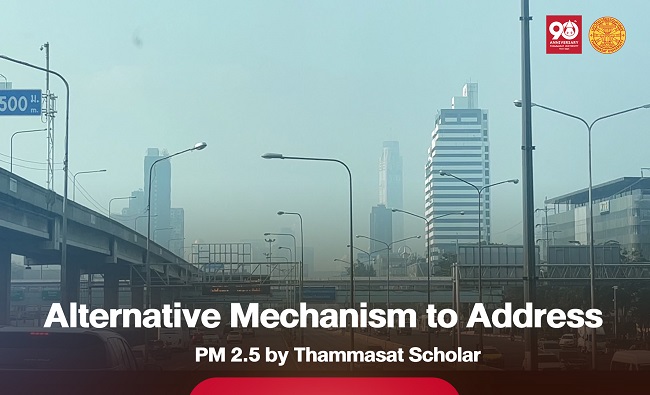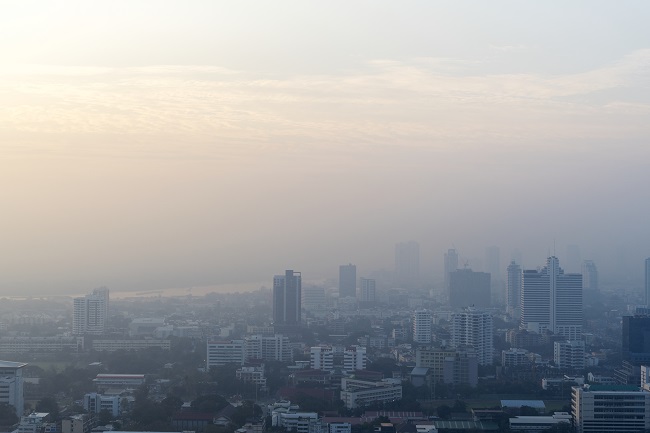Alternative Mechanism to Address PM 2.5 by Thammasat Scholar
Thammasat environmental expert recommends empowering the authority of the Clean Air Scientific Advisory Committee (CASAC) to support the mitigation of PM 2.5 in conjunction with the enactment of legislation.
Tuesday 30 January 2024

Assoc. Prof. Dr. Surasak Boonrueng, a professor at the Center for Natural Resources and Environmental Law, Faculty of Law, Thammasat University, revealed that addressing air pollution and small particulate matter (PM 2.5) requires considering the entire process of the problem, originating from multiple sources, where the management of agricultural waste is crucial. The government should support businesses involved in agricultural waste processing, both at the community and medium-sized levels. Besides the regulations solely for air pollution control, there should be measures to promote and support activities that control polluters.
In addition to this, there should be measures in place to incentivize organizations, companies, or private sector entities that contribute to addressing and mitigating environmental issues or promoting clean air mechanisms. For example, rewards or rankings can be given based on credibility and acceptance of good governance practices. These measures can be incorporated as part of legal frameworks related to clean air or other relevant laws to ensure clarity and effectiveness.

Assoc. Prof. Dr. Surasak stated that in cases where a policy committee or management committee is established under the Clean Air Act, it is advisable to grant these committees the "power" to provide recommendations or even extend to the "power to command" other agencies to implement measures or take certain actions that have not been implemented yet. In cases where budget is allocated, the allocation should be granted across the units.

Assoc. Prof. Dr. Surasak stated that Thailand has had several laws related to the management of air pollution, particularly the National Environmental Quality Act of 1992, which includes measures directly related to the issue. There are laws that specify measures for managing air pollution, such as laws on public health, factories, and national health. However, related parties agree that the existing laws have not been able to effectively address the increasingly severe problem of air pollution in recent years. Therefore, it is necessary to propose a new law, known as the "Clean Air Bill," which is currently under consideration by the Parliament with seven versions, and has already received preliminary approval in the meetings.

In addition to this, there should be legislation based on the idea of "No one left behind." It is important to recognize that part of the problem of air pollution stems from limited options for managing resources at the source of origin, particularly in agricultural waste disposal and land management. This legislation should prevent individuals from being the cause of the issue. It may be necessary to create tools or mechanisms for participation, such as supporting the establishment or formation of community-level groups and providing incentives or support in terms of financial resources or technical knowledge and capabilities for intervention. This is to promote a change in behavior and attitudes towards agricultural waste management.